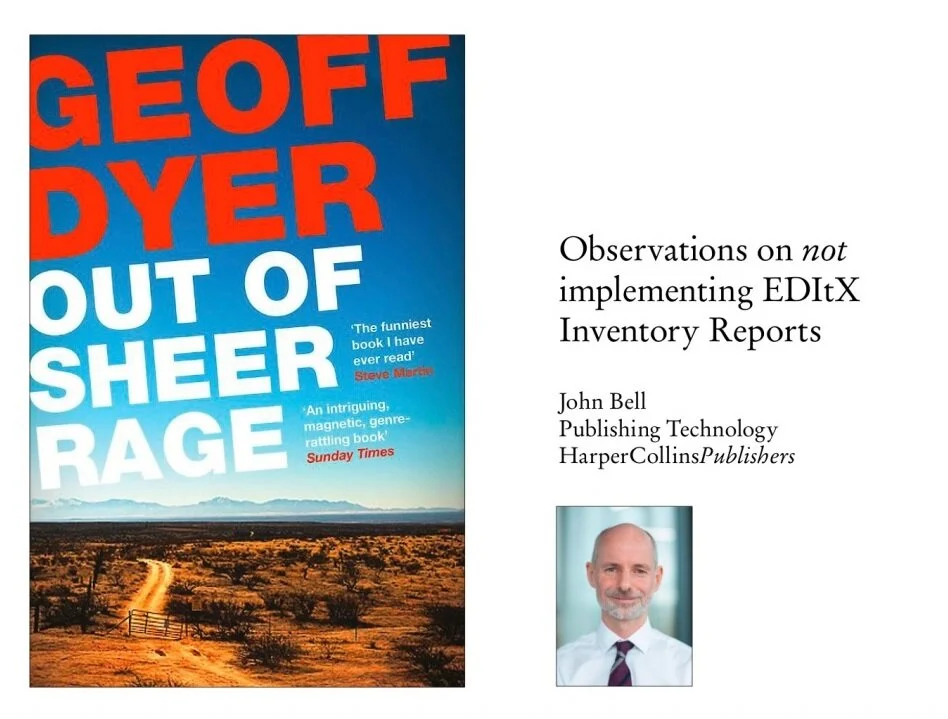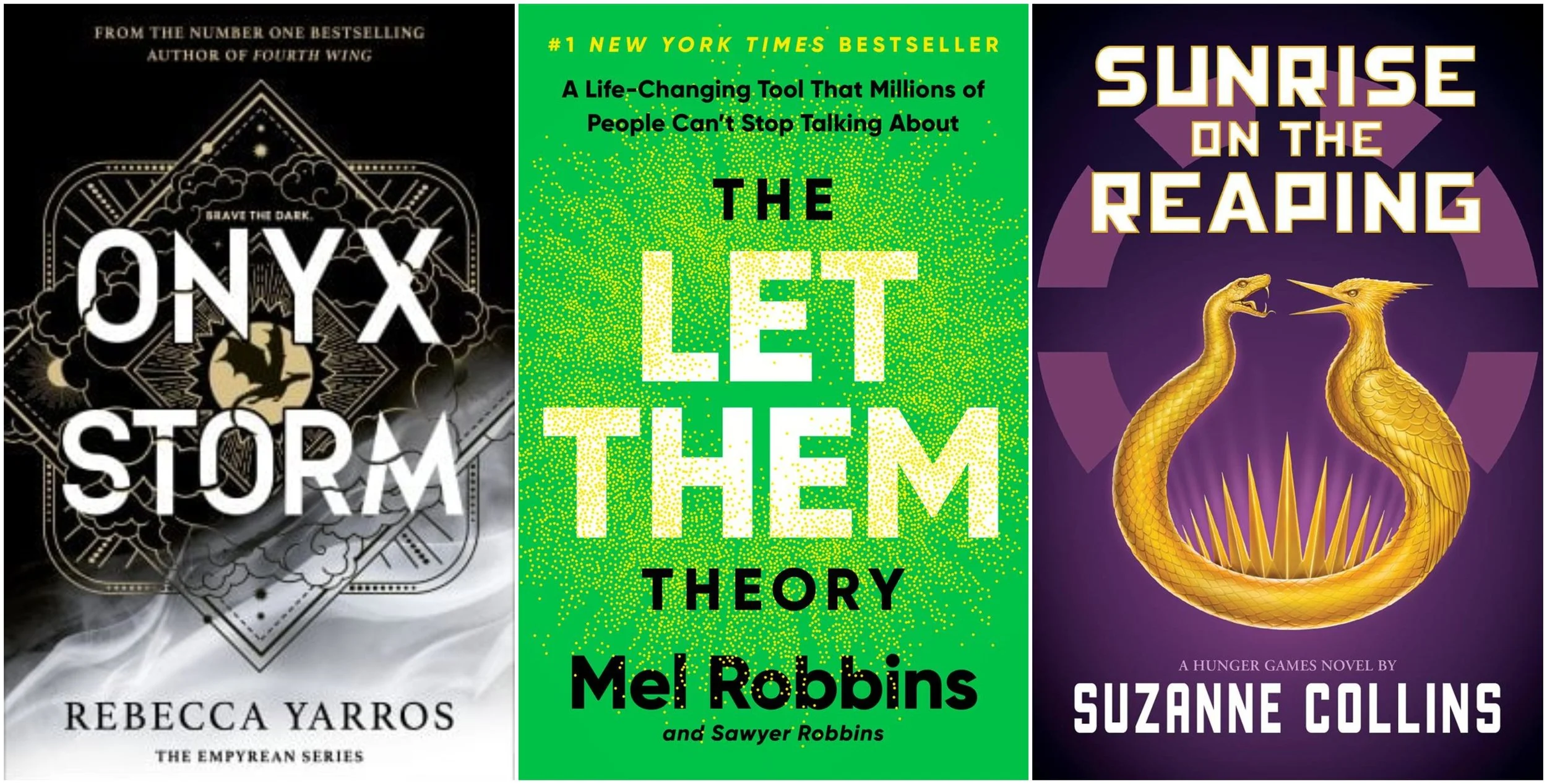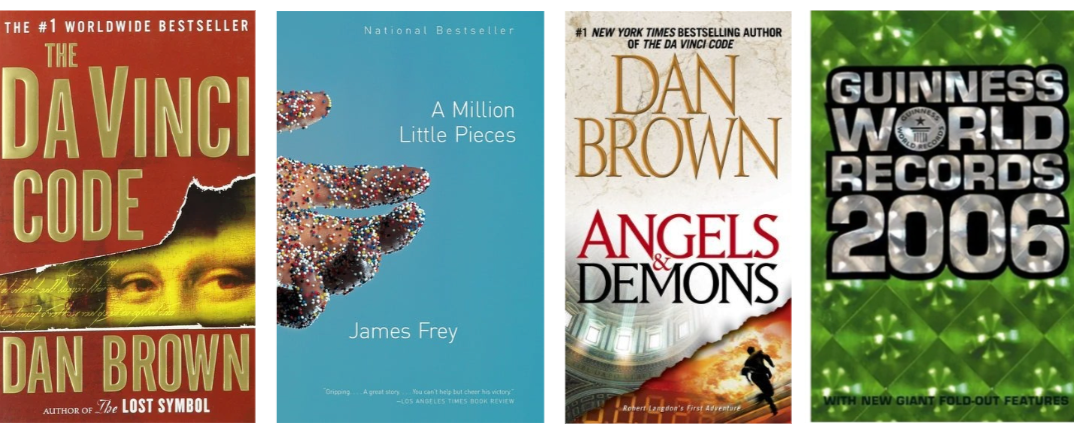On October 13, 2020, EDItEUR held the 42nd International Supply Chain Seminar, an event that was initially intended to be delivered in-person at Frankfurt book fair but, due of the pandemic, had to be moved online. The upside of this is that it's available on the EDItEUR website.
This change from in-person presentations to online (and now on demand) sessions represents a unique opportunity for the North American supply chain to hear voices from other markets doing Very Exciting Things and discussing Problems We Share.
In this post, we’ve highlighted a few sessions that we think are especially important for anyone involved in the book supply chain in Canada. But if you want to take your book standards learning journey even further, we also included links to the rest of the equally insightful and fascinating presentations at the bottom of this post.
Observations on not implementing EDItX Inventory Reports
Presented by John Bell from HarperCollins Publishers
In this presentation, John Bell addresses a fundamental issue in our current supply chain. Where are the common denominators in the messaging that trading partners communicate to each other when various stakeholders (who ostensibly are in the same business) insist on unique methods of communicating errors and availability? Why aren’t trading partners adhering to and using EDItEUR’s Inventory Report standard acknowledgement messages? In his very insightful and clear case study, John Bell shows us our folly and provides one possible solution to this issue which prevents businesses from understanding each other in what should be a single message communicated efficiently.
For the Canadian supply chain, here are three questions to ask yourself and your organization:
How do we communicate and receive information about the availability of titles in the supply chain?
Why do we accept multiple documents and conflicting or confusing messages from multiple sources? Are our partners looking for a solution to this issue as well?
Are we adhering to available standards for communicating stock availability?
P.S. John Bell recommends the book on his cover slide, Out of Sheer Rage by Geoff Dyer.
Building an accessible publishing workflow
Presented by Martin Klopstock and Arthur Thompson from Kogan Page, and Sean Harrison from Book Genesis
Kogan Page presented their impressive accessible- and digital-first publishing workflow. Their decision to focus on improving the quality of their digital assets in order to improve the experience for readers with accessibility requirements resulted in a reimagined workflow with a XHTML schema that helps them define the appearance, structural semantics, and accessibility features they wanted to ensure were present in all their books. Plus, they designed their own validator to check that all accessibility requirements are met. We’re fans of this session! They effectively show how by employing the standards and interoperable technologies, Kogan Page delivers a quality product to readers in a complex marketplace, and consistently communicates the standards they meet in their data sent to trading partners. Some really great and well implemented ideas.
Adopting Thema and ONIX when building publisher and retailer websites
Presented by Jaime Iván Hurtado from Hipertexto - Netizen Digital Solutions
A deep dive into a variety of systems being built to use the rich metadata that exists now and can be promoted in the Latin American supply chain, particularly for the higher education market. In his presentation, Jaime provides insight into the championing and adoption of ONIX and Thema as accepted standards for metadata and classification. Also, he celebrates how different country’s publishing sectors have come together to provide a single solution for integrated data display and in some cases inline management.
The effect of metadata on book sales
Presented by Patrick Joly from BTLF
Patrick Joly presented an overview of the supply chain in Quebec for French-language titles as well as the results of an investigation they did into the effects of enriched metadata on book sales in 2016, 2017, and the first half of 2018 from data available in Memento. In the study, they assess top-selling titles from low, medium, and high volume publishers against the enriched metadata present in the metadata for the title. The results of the study aren’t surprising, but what is surprising is the number of titles without a cover image. An issue we encounter often in the English market. Patrick’s presentation will motivate data providers in the English Canadian market and all markets to investigate what they’re providing and to assess whether all their assets are making it to all discoverability and sales platforms where their books are available. He concludes with their plans to refine and analyze the data further and the actions they’ll take to improve the data in the French Canadian market.
P.S. BiblioShare, BookNet Canada’s bibliographic aggregation platform for the English Canadian market, accepts many supporting resources including cover, back cover, interior images, author photos, excerpts, samples, tables of contents, and reading and teacher guides. Want to learn more? Please contact us.
And as mentioned in the introduction to this post, all the other presentations that were part of the seminar are equally insightful. They all provide a sneak peek into the really interesting work going on internationally — a must-watch for anyone deeply immersed in the book standards world.
ISNI and author identification in the UK publishing supply chain: A case study. Presented by Andrew MacEwan and Emma Rogoz from The British Library.
Watch the video of this presentation, access the slides.Introducing the BIC MCD (Metadata Capabilities Directory). Presented by Peter Mathews from BIC.
Watch the video of this presentation, access the slides.Migration to ONIX 3.0. Presented by Michael Gordon Smith and Cat Colwell from the Australian Publishers Association.
Watch the video of this presentation, access the slides.Thema in the age of audio. Presented by Carl Torstensson from Storytel.
Watch the video of this presentation, access the slides.Challenges of introducing Metabooks into new markets. Presented by Wei Dai from MVB.
Watch the video of this presentation, access the slides.EDItEUR update. Presented by Graham Bell and Chris Saynor from EDItEUR.
Access the slides.
Do you have thoughts on any of these presentations? Are there metadata or standards issues that you encounter every day in your work in the Canadian supply chain? Do you have ideas for research you think would help you make decisions for your business? Please comment on this post or get in touch with us!


















Top Canadian Jr. picks for January 2026.